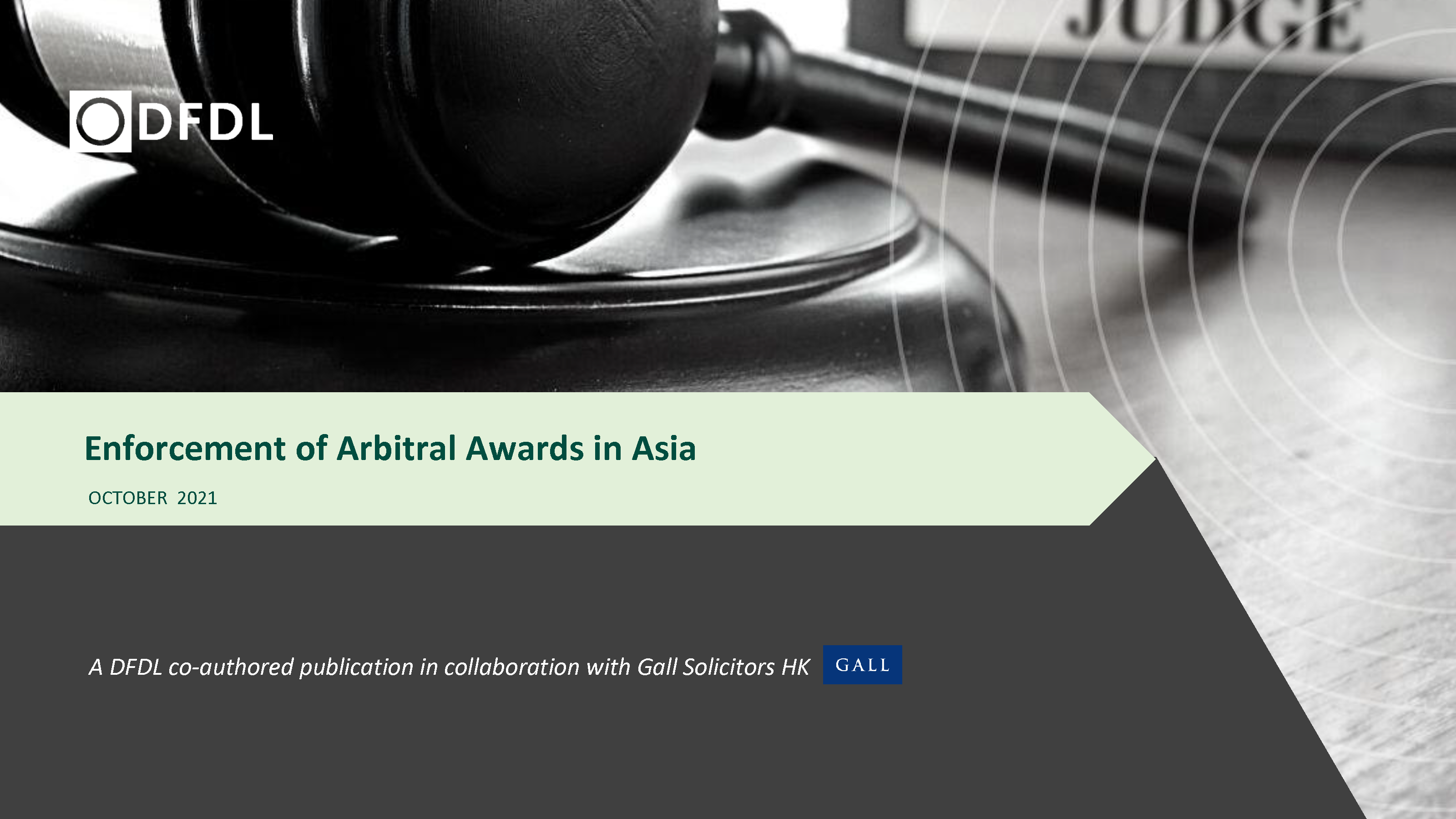
Arbitration as a means to solve contractual disputes often involving a variety of international parties, multinational concerns, global financial institutions and multi-lateral organizations is rapidly on the rise in Asia. This development goes hand in hand with growth in the region, with more arbitral institutions being set up in Asia in recent years and better capacity development in terms of handling complex and multivariate international matters. Arbitration, crucially, is increasingly seen as a better alternative to conventional litigation especially when it comes to cross-border disputes. Thanks to the New York Convention to which most countries are signatories, awards are easier to enforce in other jurisdictions than local court orders and the relevant parties are spared the problems of conflicting legislation or other local idiosyncrasies and disparities.
Nonetheless, parties to arbitratiomay still face practical challenges in the enforcement of their awards. While a greater general consensus around the efficiency and efficacy of enforcing international arbitral awards takes on fuller shape in Asia; nuances in national arbitration laws and practices across countries that may impact arbitral award enforcement must be considered. It thus remains essential that parties be advised by competent specialist practitioners attuned to certain local cultural sensitivities and fully-familiarized with enforcement proceedings in Asian courts.
In pursuit of these goals, this Q&A publication in collaboration with Gall Solicitors HK aims to cast greater light on the practical issues surrounding the enforceability of arbitral awards in Bangladesh, Cambodia, Hong Kong, Indonesia, the Lao PDR, Myanmar, Thailand and Vietnam.
What’s in?
- General information on enforcement of arbitral awards
- What types of arbitral awards are recognized and enforceable?
- What international conventions and agreements on enforcement of arbitral awards is your jurisdiction a party to?
- Procedure on enforcement of arbitral awards
- What is the general procedure for the enforcement of arbitral awards?
- Will the Court recognize and enforce decisions made in interlocutory proceedings?
- On what grounds can a Court refuse the enforcement of an arbitral award?
- What is the approach taken by the Courts regarding enforcement of arbitral awards?
- Challenges against an arbitral award
- Are there any practical challenges for enforcing arbitral awards?
- Can one appeal against arbitral awards and if yes, on what grounds?
- Future changes
- Can one apply to set aside an arbitral award?
- Are there currently any proposed changes or reforms regarding the law on enforcement of arbitral awards?
